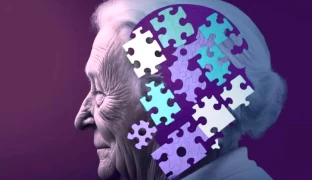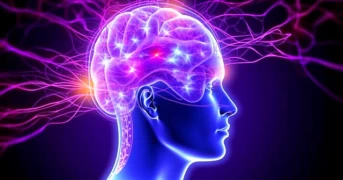
Alzheimer's Disease
- Alzheimer's Disease
- What is Alzheimer's Disease?
- How is Alzheimer's Disease Diagnosed?
- What Are the Symptoms of Alzheimer's Disease?
- What Causes Alzheimer's Disease?
- What are the Precautions to Take Against Alzheimer's Disease?
- Is It Possible to Stop the Development of Alzheimer's Disease?
- What are the Treatment Methods for Alzheimer's Disease?
- Advice to Relatives of Alzheimer's Patients
What is Alzheimer's Disease?
Alzheimer's Disease is a progressive and degenerative brain disorder that affects memory, thinking, and behavior. It is the most common cause of dementia among older adults.
The exact cause of Alzheimer's Disease is not fully understood, but it is believed to be caused by a combination of genetic, environmental, and lifestyle factors. The disease is characterized by the formation of abnormal protein deposits in the brain, including beta-amyloid plaques and tau tangles, which damage and kill brain cells over time.
The symptoms of Alzheimer's Disease usually start with mild memory loss and difficulty with tasks that involve thinking and planning. As the disease progresses, individuals may experience disorientation, mood and behavior changes, and difficulty performing everyday tasks such as dressing, eating, and bathing. As the disease worsens, communication and mobility may also become affected.
There is no cure for Alzheimer's Disease, but there are treatments available that can help manage the symptoms and slow the progression of the disease. There are also lifestyle modifications that may help reduce the risk of developing Alzheimer's Disease, such as regular exercise, a healthy diet, and staying socially active. Early diagnosis and intervention are important in managing the disease and improving the quality of life for those affected by it.
How is Alzheimer's Disease Diagnosed?
Alzheimer's Disease is typically diagnosed through a combination of medical history, physical examination, and cognitive testing. It is important to see a healthcare provider if you or someone you know is experiencing memory loss or other cognitive symptoms.
During the evaluation, the healthcare provider will ask questions about the individual's medical history, including any medications they are taking, and their family history of cognitive decline or dementia. They may also perform a physical exam to check for any neurological problems.
Cognitive testing is a key part of the diagnostic process for Alzheimer's Disease. This can involve a variety of tests to assess memory, attention, language, and problem-solving abilities. There are several different cognitive tests that can be used, but the Mini-Mental State Examination (MMSE) is one of the most commonly used tests.
In addition to cognitive testing, imaging tests such as magnetic resonance imaging (MRI) and positron emission tomography (PET) scans can be used to detect changes in the brain that are associated with Alzheimer's Disease.
Ultimately, a diagnosis of Alzheimer's Disease is made based on a combination of the individual's medical history, physical exam, cognitive testing, and imaging results. It is important to note that early diagnosis and intervention can help improve the quality of life for individuals with Alzheimer's Disease and their caregivers.
What Are the Symptoms of Alzheimer's Disease?
Alzheimer's disease is a progressive and irreversible brain disorder that affects memory, thinking, and behavior. It typically affects older adults and is the most common cause of dementia.
The symptoms of Alzheimer's disease usually begin with mild memory loss and confusion, but as the disease progresses, other symptoms such as language difficulties, spatial problems, mood and behavior changes, and difficulty performing daily tasks may also occur.
Some of the symptoms of Alzheimer's disease may include:
- Memory loss: The earliest symptoms typically involve memory loss, such as forgetfulness and repeating questions. This memory loss is particularly prominent for new information in the early stages.
- Cognitive impairment: Patients may experience a decline in cognitive abilities, including difficulty with mental calculations, decision-making, planning, and thinking skills.
- Language problems: Patients may struggle with speech and word choice, become confused in conversations, and have difficulty recalling names, places, and objects.
- Spatial problems: Patients may experience confusion about time, place, and space, and may not recognize their surroundings. This can lead to wandering and getting lost.
- Mood and behavior changes: Patients may experience changes in mood, such as anxiety, confusion, anger, and depression. They may also have difficulty with social interactions and performing daily tasks.
While Alzheimer's disease cannot be cured, there are a range of treatment options available to manage symptoms and slow the progression of the disease. Early diagnosis and intervention are important for managing the disease and improving the quality of life for patients and caregivers.
What Causes Alzheimer's Disease?
The exact cause of Alzheimer's disease is not fully understood, but it is believed to result from a combination of genetic, environmental, and lifestyle factors.
Some of the factors that have been linked to an increased risk of developing Alzheimer's disease include:
- Age: The risk of developing Alzheimer's disease increases as people age, with most cases occurring in individuals over the age of 65.
- Genetics: Several genes have been linked to an increased risk of developing Alzheimer's disease, including the APOE gene. However, having these genes does not necessarily mean a person will develop the disease.
- Lifestyle factors: Poor diet, lack of exercise, smoking, and excessive alcohol consumption have all been linked to an increased risk of developing Alzheimer's disease.
- Brain changes: Alzheimer's disease is characterized by the presence of amyloid plaques and tau protein tangles in the brain, which can interfere with communication between nerve cells and lead to their death.
- Chronic inflammation: Chronic inflammation has been linked to the development of Alzheimer's disease, as it can damage brain cells and contribute to the buildup of amyloid plaques.
While researchers have made progress in understanding the causes of Alzheimer's disease, much more research is needed to fully understand the disease and develop effective treatments.
What are the Precautions to Take Against Alzheimer's Disease?
While there is no surefire way to prevent Alzheimer's disease, there are several steps individuals can take to reduce their risk of developing the disease. Here are some precautions you can take:
- Exercise regularly: Regular physical activity, such as brisk walking or cycling, can help maintain brain health and reduce the risk of Alzheimer's disease.
- Maintain a healthy diet: Eating a healthy diet that is rich in fruits, vegetables, whole grains, and lean proteins can help reduce the risk of Alzheimer's disease.
- Stay mentally active: Engage in mentally stimulating activities such as reading, puzzles, and board games. Learning new skills or taking on new challenges can also help maintain brain health.
- Stay socially active: Maintaining an active social life can help reduce the risk of Alzheimer's disease, as social interactions can stimulate the brain and help maintain cognitive function.
- Manage chronic health conditions: Managing chronic health conditions, such as diabetes and high blood pressure, can help reduce the risk of Alzheimer's disease.
- Get adequate sleep: Adequate sleep is important for maintaining brain health and reducing the risk of Alzheimer's disease.
- Manage stress: Chronic stress can have negative effects on brain health, so it's important to manage stress through activities such as meditation, yoga, or deep breathing exercises.
While these precautions may not guarantee that a person will never develop Alzheimer's disease, they can help reduce the risk and promote overall health and well-being.
Is It Possible to Stop the Development of Alzheimer's Disease?
While there is no cure for Alzheimer's disease, some medications and lifestyle changes can help slow the progression of the disease and improve quality of life for people living with the condition.
Medications can help manage the symptoms of Alzheimer's disease and improve cognitive function, but they do not stop the underlying disease process. For example, cholinesterase inhibitors such as donepezil, galantamine, and rivastigmine can help improve memory and thinking skills in people with mild to moderate Alzheimer's disease. Memantine is another medication that can help with cognitive symptoms in people with moderate to severe Alzheimer's disease.
In addition to medication, lifestyle changes such as regular exercise, a healthy diet, and staying mentally and socially active may help slow the progression of the disease and improve overall quality of life.
It's important to note that not all cases of Alzheimer's disease progress at the same rate or in the same way, and the progression of the disease can be unpredictable. While some people may experience a slow decline in cognitive function over several years, others may experience a more rapid decline.
Overall, while it is not currently possible to stop the development of Alzheimer's disease, there are steps people can take to manage the symptoms of the disease and improve their overall quality of life.
What are the Treatment Methods for Alzheimer's Disease?
Unfortunately, there is currently no cure for Alzheimer's disease. However, there are some treatment methods available to manage the symptoms and improve the patient's quality of life.
- Medication: There are specific medications developed for Alzheimer's disease. They may help to reduce the symptoms by decreasing the neuron damage and inflammation in the brain caused by the disease. However, medications do not cure the disease; they only help to manage the symptoms.
- Psychosocial treatment: This treatment method provides mental and emotional support to the patient and caregiver to improve their quality of life. Psychosocial treatments include counseling, therapy, social activities, exercise, and music therapy.
- Supportive treatment: Alzheimer's patients may need assistance in their daily lives. Therefore, supportive treatments like home care, assistive technologies, support groups, and other resources can be provided.
- Lifestyle changes: People living with Alzheimer's disease are encouraged to make lifestyle changes like eating a healthy diet, regular exercise, sleep patterns, limiting smoking and alcohol use, and engaging in mental and social activities.
While there is no cure to stop the progression of Alzheimer's disease, these treatment methods can be used to manage the symptoms and improve the patient's quality of life.
Advice to Relatives of Alzheimer's Patients
Caring for a loved one with Alzheimer's disease can be challenging, both emotionally and physically. Here are some pieces of advice that may help relatives of Alzheimer's patients:
- Educate yourself: Learn as much as you can about Alzheimer's disease, including its symptoms, progression, and treatment options. This will help you understand what your loved one is going through and how to support them.
- Be patient: Alzheimer's patients may have trouble communicating, remembering things, and performing daily tasks. Be patient and understanding, and avoid criticizing or becoming frustrated with your loved one.
- Establish a routine: Establishing a regular routine can help your loved one feel more comfortable and secure. Keep a consistent schedule for meals, medication, and daily activities.
- Create a safe environment: Alzheimer's patients may become confused or disoriented, which can lead to accidents. Make sure their living environment is safe by removing any tripping hazards, securing sharp objects, and keeping doors and windows locked.
- Take care of yourself: Caring for a loved one with Alzheimer's disease can be emotionally and physically draining. Make sure to take care of yourself by eating a healthy diet, getting regular exercise, and taking breaks when needed. Consider seeking support from friends, family, or a professional caregiver.
- Be present and show your love: Alzheimer's patients may struggle with memory and communication, but they can still feel the love and support of their family members. Be present with your loved one, listen to them, and show them affection.
Remember, caring for a loved one with Alzheimer's disease is a journey that requires patience, understanding, and love. By educating yourself, establishing a routine, creating a safe environment, taking care of yourself, and showing love, you can provide the best possible care for your loved one.





